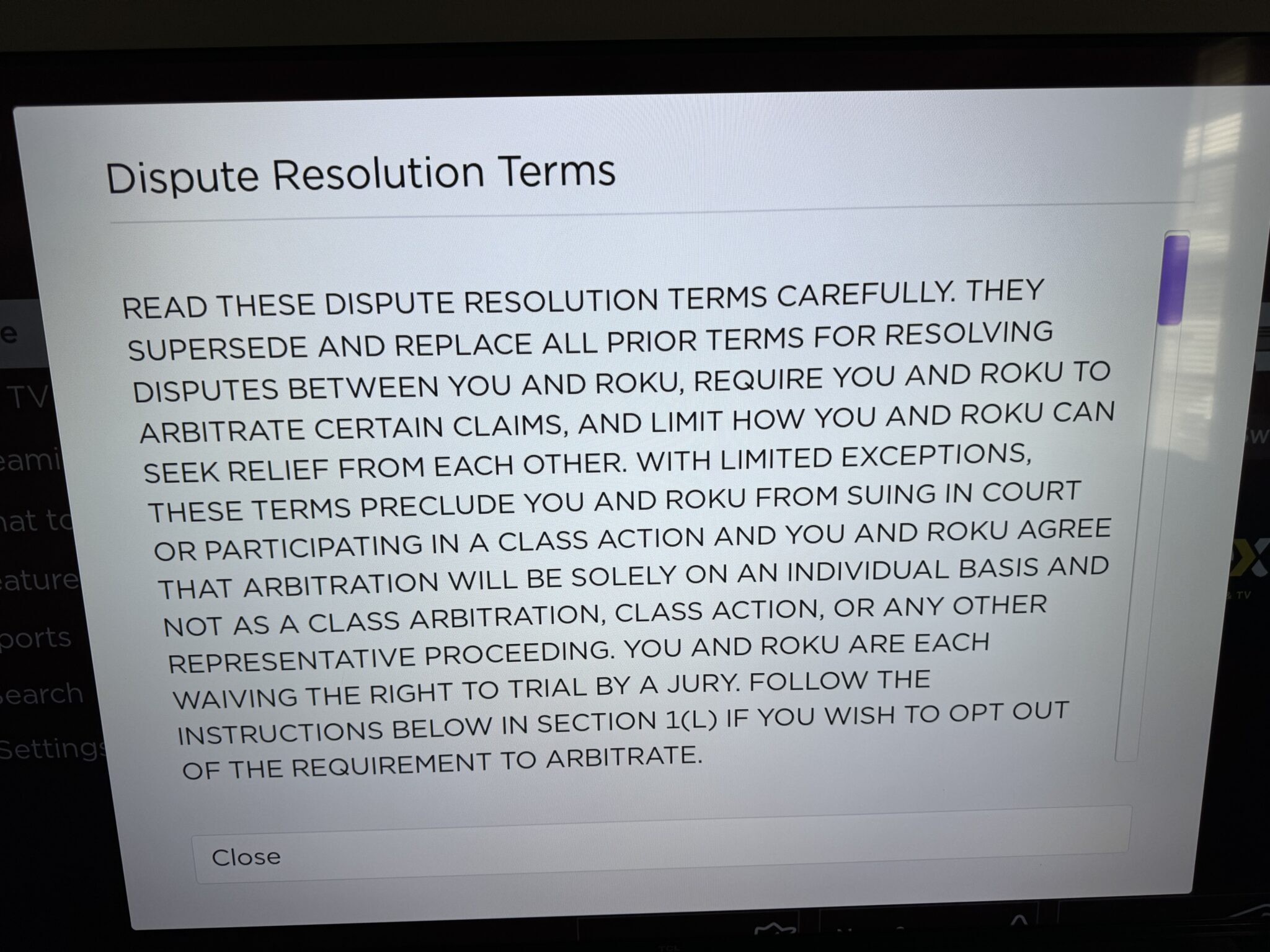this post was submitted on 03 Mar 2024
1510 points (98.6% liked)
Technology
60272 readers
4606 users here now
This is a most excellent place for technology news and articles.
Our Rules
- Follow the lemmy.world rules.
- Only tech related content.
- Be excellent to each another!
- Mod approved content bots can post up to 10 articles per day.
- Threads asking for personal tech support may be deleted.
- Politics threads may be removed.
- No memes allowed as posts, OK to post as comments.
- Only approved bots from the list below, to ask if your bot can be added please contact us.
- Check for duplicates before posting, duplicates may be removed
Approved Bots
founded 2 years ago
MODERATORS
you are viewing a single comment's thread
view the rest of the comments
view the rest of the comments

Arbitration is allowed in an EULA and has been sanctioned by courts.
Most agreements are considered enforceable as long as their content is reasonable, you have been granted sufficient notice to accept or decline the agreement, the agreement is not unconscionable, and it doesn't violate the UCC.
The question isn't whether arbitration clauses are legal the question is whether selling someone something and then, after the sale, presenting them with a take it or leave it EULA that disables the product if they dont agree, and also what recourse the consumer has if they don't agree to a post-sale EULA. Brower v Gateway said that post-sale EULAs are binding but only because in that case the consumer had the option to return the product for a refund and didn't. Klocek v Gateway ruled that any terms presented after a sale represent a separate contract beyond the one that was agreed to by both parties at the time of sale. It's possible that either of these would apply to the OP. It's also possible for courts to rule that the sale of the physical TV was a one-time agreement but that this EULA is separate and represents an ongoing agreement to allow access to Roku's services.
Your comment actually circles around the issue at hand when you say that EULAs are enforceable if "...you have been granted sufficient notice to accept or decline...". The thrust of the argument is that adding conditions after the sale of an object that, if not agreed to, render the object inoperable feels an awful lot like not being given sufficient notice and is essentially a backdoor by which the contract can be unilaterally amended after agreement.
I just think that contracts of adhesion (IIRC) should be illegal or unenforceable. Make me wet sign a document or go to a separate docusign at least, this click wrap is crap. Get me to affirmatively agree, not click OK till the install or setup completes. Otherwise I strongly disagree there's actually a meeting of the minds. And if I can't send back my suggested alterations for cross signatures, it's not a valid contract either IMHO.
That said, we've decided to continue to screw people over as we all know.